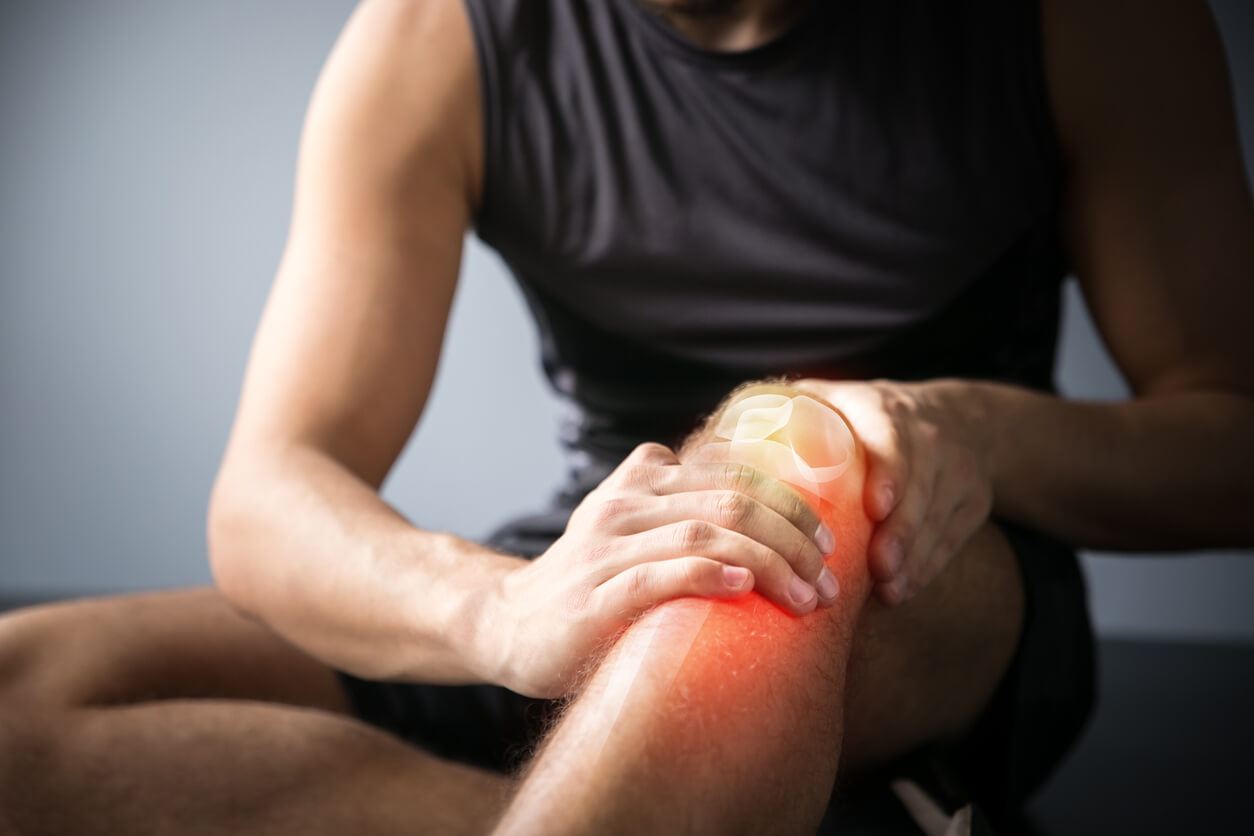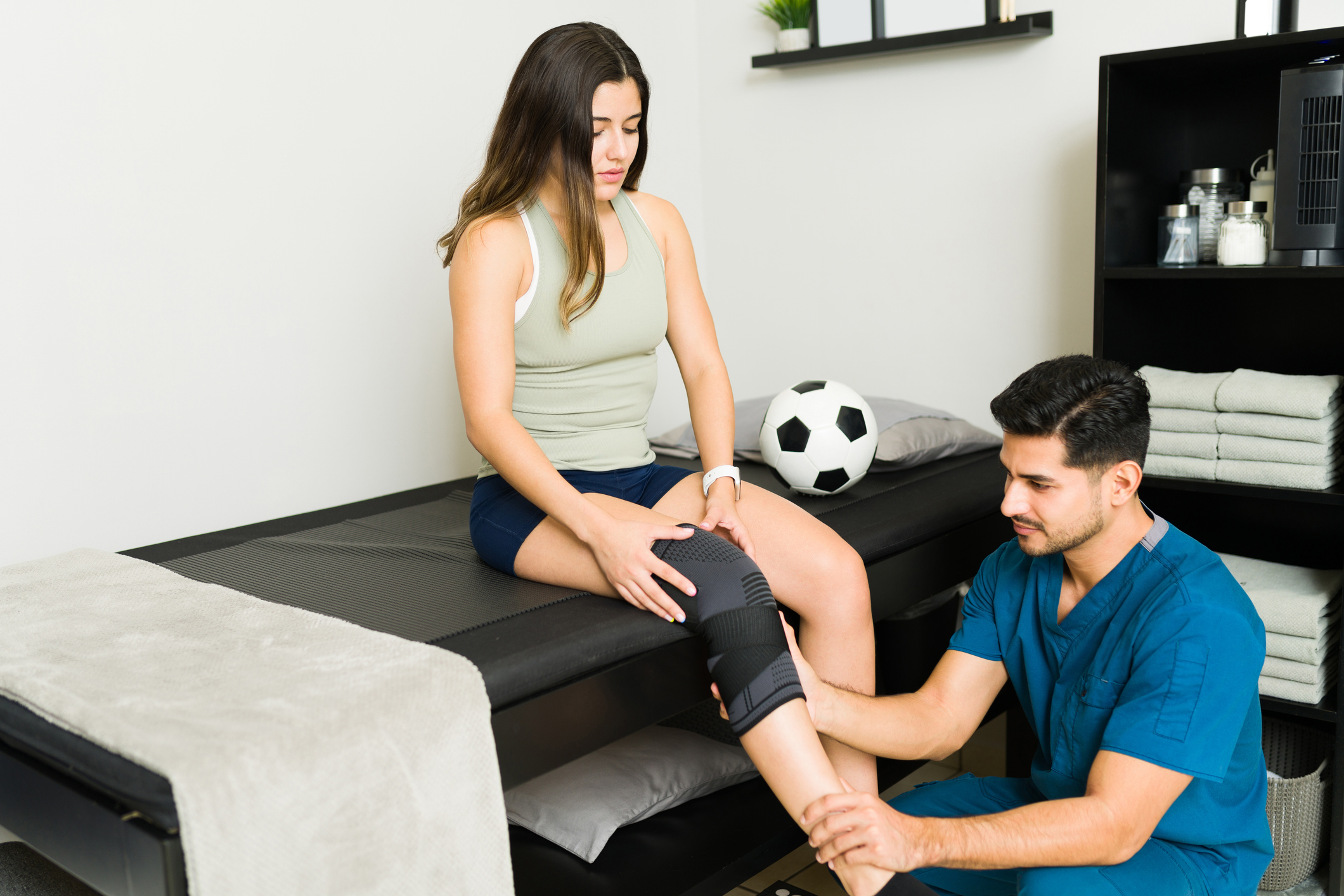
Are Knee Injections Right for Me?
The fluid in your knee joints have a natural lubricant between the bones called hyaluronic acid. The lubricant acts as a shock absorber. In many people, this lubricant wears away with time, causing knee pain. Your doctor may prescribe nonsteroidal anti-inflammatory drugs (NSAIDs) to provide relief. But if over-the-counter or prescription strength NSAIDs don’t provide relief, your doctor may recommend injections. Your options include synthetic hyaluronic acid and corticosteroids. Each acts in a different way.
Viscosupplementation Injections
Viscosupplementation injections infuse your problem joint with synthetic hyaluronic acid. Depending on the product your doctor uses, he or she may give you an injection once a week for three to five weeks. As part of the procedure, your doctor will likely remove a small amount of your own joint fluid to make room for the synthetic version. According to the American Academy of Orthopaedic Surgeons (AAOS), you are not likely to experience pain relief immediately. You may even have some swelling, pain, and a feeling of warmth at the site of your injection. Applying an ice pack will help, and your symptoms should go away quickly. For the first 48 hours, you should stay off your leg as much as possible and avoid heavy lifting.
You should find that your pain lessens as you receive more injections. Hyaluronic acid is not an anti-inflammatory, but it may stimulate your body to make more of its own hyaluronic acid. It seems most helpful for those with early, mild-to-moderate knee conditions. Viscosupplementation is not recommended for people who have had osteoarthritis for a long time.
Corticosteroid Injections
Sometimes doctors will inject corticosteroids into your knee joint to relieve pain. Cortisone is a specific kind of steroid that your adrenal glands make naturally. These glands are located above each kidney. Cortisone decreases inflammation and, in turn, reduces pain.
People with moderate-to-severe knee pain are likely candidates for corticosteroids. According to the AAOS, corticosteroid injections are most helpful if you have a lot of swelling. They are not as useful if your osteoarthritis affects your joint mechanics—your ability to move. Your doctor has a choice of corticosteroids to use.
As with viscosupplementation, the site of your injection can become inflamed immediately after the injection. Icing and avoiding strenuous activity can help with cortisone injections as well.
Manufacturers say that corticosteroids can provide relief from pain and inflammation, anywhere from a few days to more than six months. However, studies find the benefit is short-lived, from one to four weeks.
While cortisone injections don’t have the same side effects as oral steroids, they still have risks. If you get too many injections, your cartilage can break down, causing more joint damage. For this reason, your doctor is likely to limit the number of injections.
Viscosupplementation Versus Cortisone Injections
Both approaches have mixed reviews. A 2009 analysis of studies on both types of injections revealed that people had better initial benefits from the cortisone injections than from viscosupplementation. After four weeks, the results were about the same. At the three- and six-month marks, however, relief was better from the hyaluronic acid (viscosupplementation).
Another analysis in 2012 offers a different viewpoint. It found that injections of hyaluronic acid have little effect on pain, and when they do, results start to fade after eight weeks. The study also suggested that the injections had side effects, including gastrointestinal and cardiovascular events. Doctors still don’t know the long-term effects of hyaluronic acid injections, and more research needs to be done in this area.
The bottom line is that there is uncertainty surrounding both types of knee injections.
Talk to your doctor to make the right decision for you.
Key Takeaways
If you’re not getting the relief you need from oral medications for knee pain, your doctor may recommend injections into your joint.
There are two main kinds of injections, viscosupplementation and corticosteroids.
Viscosupplementation is suggested for people with mild-to-moderate osteoarthritis. Corticosteroids are suggested for people with moderate-to-severe pain.
Both injections have side effects, and the benefits may be short-lived. Talk to your doctor to help make the right decision for you.
Call for an Appointment
Palmetto Bone and Joint has numerous specialists to take care of your arthritis or any bone and joint problem you may have. Call to schedule an appointment at any of our 3 convenient locations. 803-941-8095, 803-321-6254, or 864-833-3046



